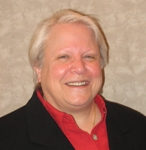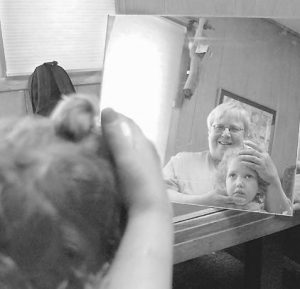Our heartfelt thoughts are with all our hosting partners, including Texas Children’s Hospital, River Kids Pediatric, Med Care Pediatric and our wonderful community of therapists affected by Hurricane Harvey.
Please stay safe everyone!
]]>Our heartfelt thoughts are with all our hosting partners, including Texas Children’s Hospital, River Kids Pediatric, Med Care Pediatric and our wonderful community of therapists affected by Hurricane Harvey.
Please stay safe everyone!
]]> 
 Rona Alexander SLP – specializing in the assessment and treatment of oral-motor, feeding/swallowing, and respiratory-phonatory function[/caption]
Rona Alexander SLP – specializing in the assessment and treatment of oral-motor, feeding/swallowing, and respiratory-phonatory function[/caption]
“The best course I’ve been to, all information I can use on Monday when I get back to work! Any pediatric SLP should take this course.” -Melissa Eck, SLP
“Excellent workshop. Huge amount of update – even for a therapist with 40 yrs of pediatric experience! Able to cue in to current philosophies and treatment regimes for immediate affect on the treatments I do in the medically fragile setting. Thank you.” – Cynthia Johnson, OT
“It is a genuine privilege to learn and be taught by Rona Alexander, a master clinician in her field.” Diane Soohoo,OT
“Rona was absolutely outstanding. She has a rich experience and complex understanding of oral motor, feeding and swallowing that is hard to find. throughout her presentation she provided invaluable precious nuggets of information to help all pediatric therapists.” Rebecca Pokluda,OT
Rona’s popular course:
Assessment and Treatment of Children with Oral Motor, Feeding/Swallowing and Respiratory Function Challenges: Children with Neuromuscular Involvement
This course delivers clinically relevant assessment and treatment strategies. A special emphasis is on postural alignment and control as well as on sensory factors that can influence a childs feeding and swallowing. Effective treatment strategies to improve cheeks/lips, tongue, jaw and rib cage function will be highlighted.
September 15-17, 2017 – Johnston, IA
October 6-8, 2017 – Valhalla, NY
March 9-11, 2018 – TBA
April 13-15, 2018 – TBA
June 22-24, 2018 – TBA
October 5-7, 2018 – Houston, TX
November 30 – December 2, 2018 – Tulsa, OK
Watch for new dates and venues being added very soon!
Please click here for detailed course information, CEU information, to download a brochure and to register
The research was led by investigators at the National Institute on Deafness and Other Communication Disorders (NIDCD), part of the National Institutes of Health.
U.S. Department of Health & Human Services News Release: Wednesday, January 27, 2016
More than 1 in 20 (nearly 3.3 million) children between the ages of 3 and 17 have a dizziness or balance problem, according to an analysis of the first large-scale, nationally representative survey of these problems in U.S. children. Prevalence increases with age, with 7.5 percent of children ages 15-17 and 6.0 percent of children ages 12-14 having any dizziness or balance problem, compared with 3.6 percent of children ages 6-8 and 4.1 percent of children ages 3-5. The research was led by investigators at the National Institute on Deafness and Other Communication Disorders (NIDCD), part of the National Institutes of Health.
Researchers found that girls have a higher prevalence of dizziness and balance problems compared to boys, 5.7 percent and 5.0 percent, respectively. In addition, non-Hispanic white children have an increased prevalence of dizziness and balance problems (6.1 percent) compared with Hispanic (4.6 percent) and non-Hispanic black (4.3 percent) children. The findings were published online January 27 in The Journal of Pediatrics(link is external).
Please Click Here to Read the Full Report.
Look out for our new Pediatric Vestibular course coming in December 2017 and early 2018.
Vestibular Therapy for the School-Aged Child and Adolescent
Inger Brueckner
December 1-2, 2017 – Oregon, OH
March 2-3, 2018 – Portland, OR
April 28-29, 2018 – San Diego, CA
June 1-2, 2018 – Rockford, IL
October 5-8, 2018 – Cedar Knolls, NJ
This course is designed to help clinicians tailor their vestibular therapy treatments to meet the needs of children aged 5-18. New research has suggested that this population is vastly under served. Children are often difficult to treat effectively because they do not have the vocabulary to describe their complaints, and diagnostic testing requires full cooperation to be useful. This course was developed to address the gap in identification and treatment of common pediatric vestibular conditions such as mTBI, trauma, BPPV, migrainous disorders, autonomic dysfunction, oculomotor dysfunction, visual motion sensitivity vestibular neuritis, and dizziness/imbalance from unknown etiology.
This course will present current evidence, hypothesis of pathology treatment ideas for successful programs to help identify, and progress rehabilitation programs with the goal of improved postural and gaze stability. This course combines lecture, hands on lab, video and case presentations to help the practitioner diagnose and treat specifically for the younger patient. The techniques presented can also be applied to adult populations.
Join our Mailing/Email List Here – Learn about courses coming to your region
]]>
Paula Cox, PT, DSc, PCS[/caption]
Welcoming Paula to the Education Resources Faculty
Paula is a licensed, board certified, physical therapist with over 35 years of clinical experience in pediatric neurological and neuromuscular rehabilitation. She is a member of the APTA, the Academy of Pediatric Physical Therapy (APPT), and the IL PT Association. Dr. Cox served on the APPT’s NICU to EI transition work group. She is committee chair for the APPT CE course Advanced Clinical Practice in Pediatric Therapy, an ongoing course that investigates current theories and evidence-based practice across settings. Dr. Cox presently works as an adjunct professor at Midwestern University in Downers Grove, Illinois. She operates a private pediatric practice in the Chicago area and provides ongoing mentoring to PT’s in the Chicago area. She developed and presented an evidence-based pediatric gait course “Walking in My Shoes.” Dr. Cox received her Advanced MS in PT from Long Island University and her Doctor of Science in Pediatric Rehabilitation from the University of Oklahoma Health Sciences Program. Her doctoral research examined the use of a robotic scooter, the SIPPC, to provide early autonomous locomotion for infants with Down syndrome.
We are thrilled to offer her course:
Tools to Enhance Motor Control, Motor Learning and Strength for Function
This intermediate level lecture and lab course will explore how characteristics of cerebral palsy, autism, and other neuromotor diagnoses influence motor control, motor learning, strength, and function for children from birth to teens. Evidence-based examination and intervention strategies will be presented to promote motor learning and achievement of personal, functional outcomes in light of a child’s specific diagnosis. Using the ICF as a framework for practice, case studies and lab sessions will provide attendees opportunities to integrate the information provided with clinical judgement to develop outcomes, examination plans, and intervention activities for a given child. Therapists will learn to apply valid and reliable tools to measure responses to intervention over time in order to set treatment priorities, document progress and modify intervention
Current scheduled dates:
October 28-29, 2017 – Los Angeles, CA
November 10-11, 2017 – Mountainside, NJ
May 19-20, 2018 – Washington, DC
Watch for new dates and venues being added very soon!
Please click here for detailed course information, CEU information, to download a brochure and to register

We are thrilled to welcome Nisha Hochman, MS, OTR/L as a valuable consultant to the ERI team.
Nisha received both her bachelor of science and post-professional master’s degree in occupational therapy from Boston University. She has been practicing occupational therapy in a variety of school settings since 2000, most recently and for the last 8 years, she has been working for the Dover Public Schools in Massachusetts . Her responsibilities entail direct service, consultation and staff training.
She is certified in Sensory Integration and Interactive Metronome.
Nisha will be working with our team advising on current topics, trends , and the therapy needs within school systems. She has devoted a lot of her research this year to helping our own in house therapists develop the content for our upcoming Therapies in the School Conference in November in Massachusetts.
Please join us in welcoming Nisha to the ERI family.
If you have any ideas for future topics or speakers please do contact us here:
info@educationresourcesinc.com